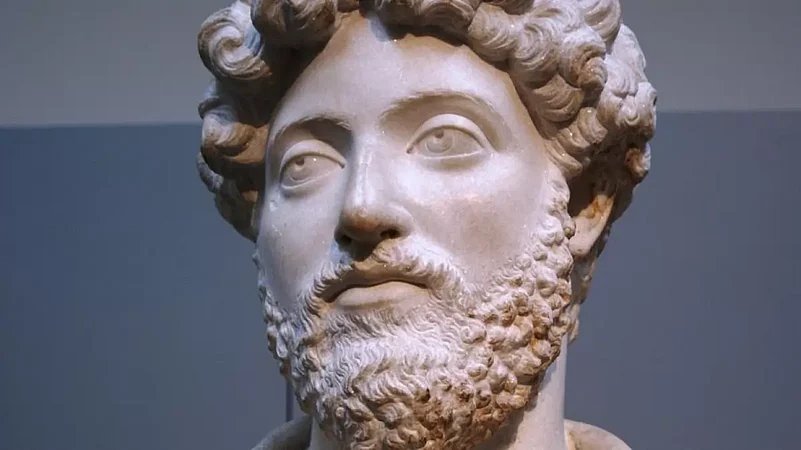The recent fascination among American men with the Roman Empire has taken the internet by storm. In the last 24 hours, posts with the #romanempire have pulled million of views. Whether it is Instagram, Tik Tok or X, all social media platforms are inundated with content related to Julius Caesar, Roman history, and more.
Here, we delve into the wisdom of some prominent philosophers of the Roman Empire, whose insights continue to be a treasure for the modern world amid the challenges of stress, anxiety, and suffering:
1. Marcus Aurelius: A prominent stoic philosopher and Emperor, his work "Meditations" is a timeless gem for those interested in stoicism. Stoicism emphasizes developing a strong personality that remains resilient regardless of circumstances. "Meditations" reflects on Marcus's tumultuous years during his reign and political intrigues. The wisdom in this book is still cherished and relevant in times of chaos and suffering.
2. Seneca: Seneca was an orator, playwright, and statesman. His thoughts and essays are collectively compiled in a book called "Epistulae Morales," popularly known as "Letters to a Stoic." His philosophy emphasizes the significance of reason, self-control, and the value of virtue in one's life. The core idea is to inspire individuals to cultivate qualities of inner peace and tranquility.
3. Epictetus: Born as a slave, Epictetus rose to prominence through his teachings on ethics and inner freedom. It is said that he did not write anything himself. His teachings were documented by his pupil Arrian in "Enchiridion" or "Handbook." He imparted religious and morality-based lessons.
4. Cicero: Cicero was a Roman philosopher, lawyer, and orator renowned for his rhetorical skills. He studied philosophy, law, and rhetoric. His speeches are still studied for their persuasive and convincing power. His works primarily focus on the significance of values, justice, and duty. He emphasized an individual's responsibility to act in the best interest of society. Some of his notable works include "On the Republic," "On the Laws," "On the Good Life," and "How to Tell a Joke."
The profound works of these philosophers offer a broader perspective on the internal and external circumstances. Let's delve deeper into their profound philosophies, combining our fascination with the Roman Empire.


























